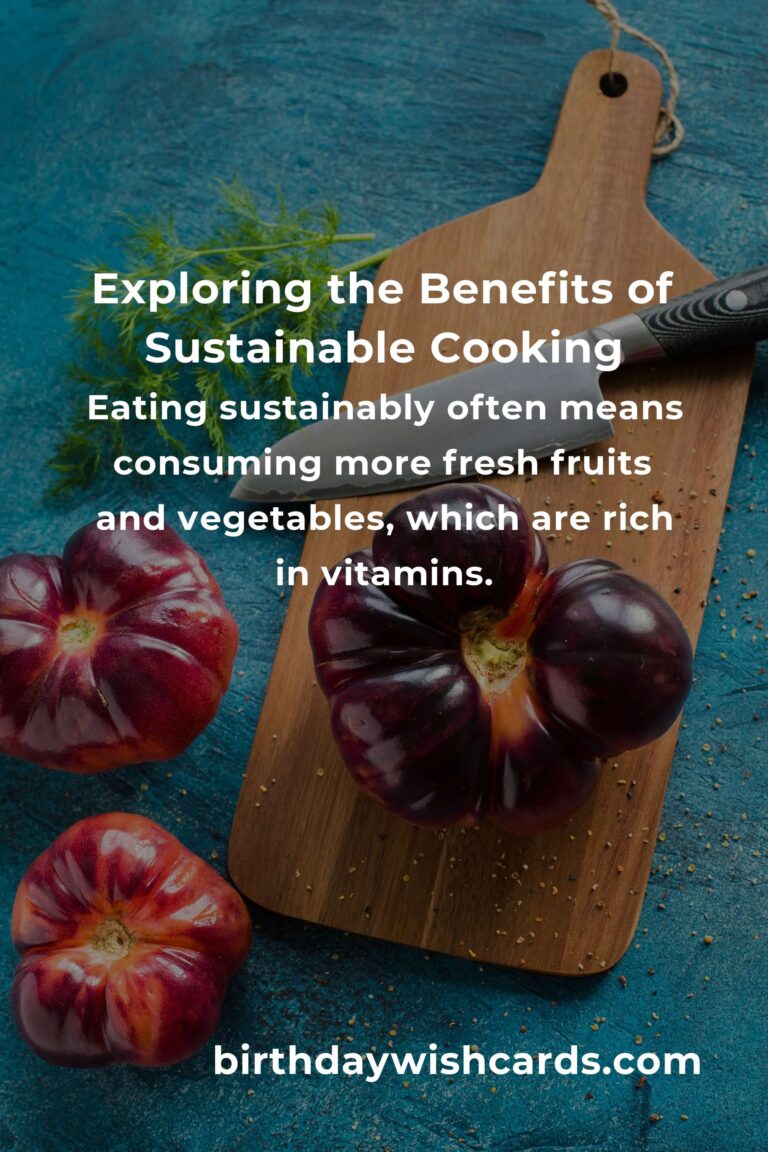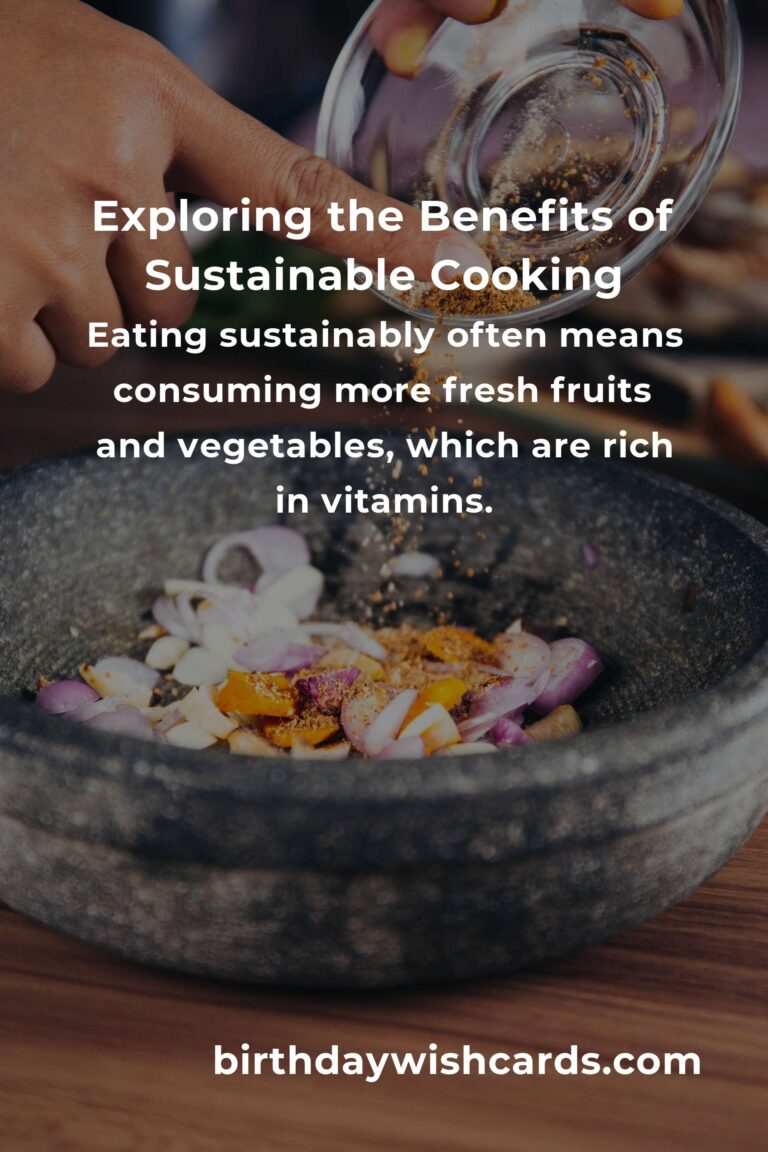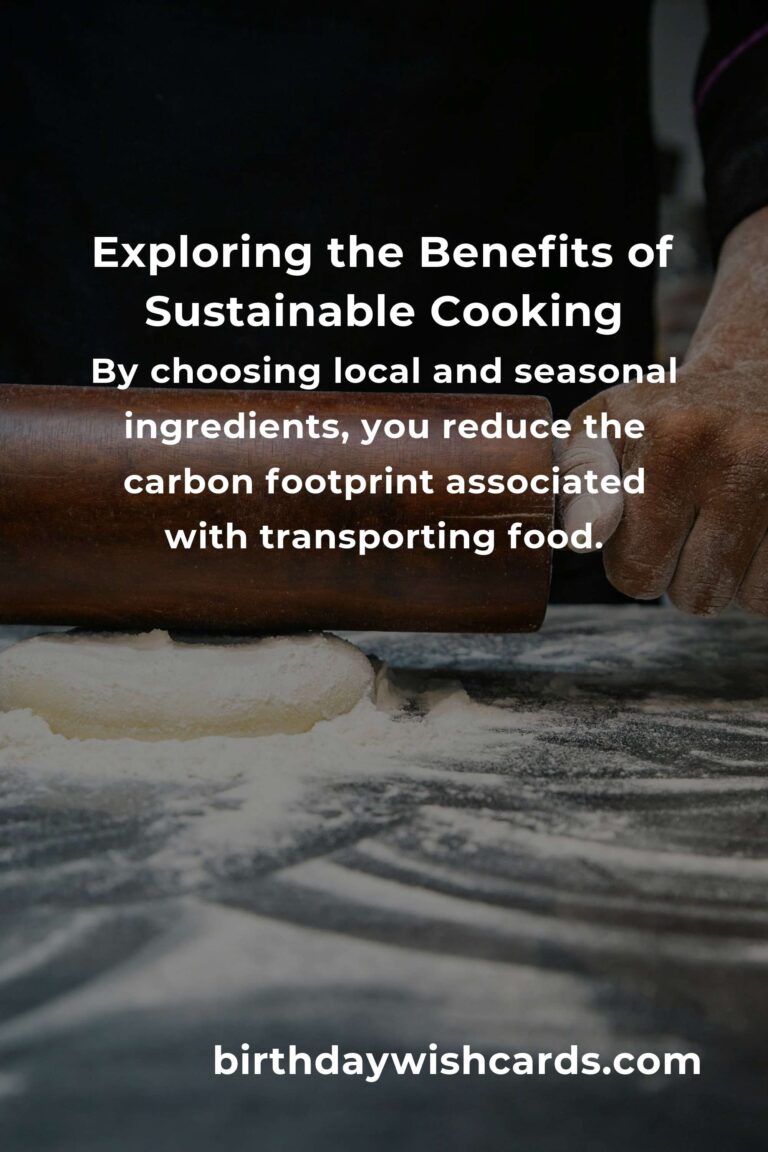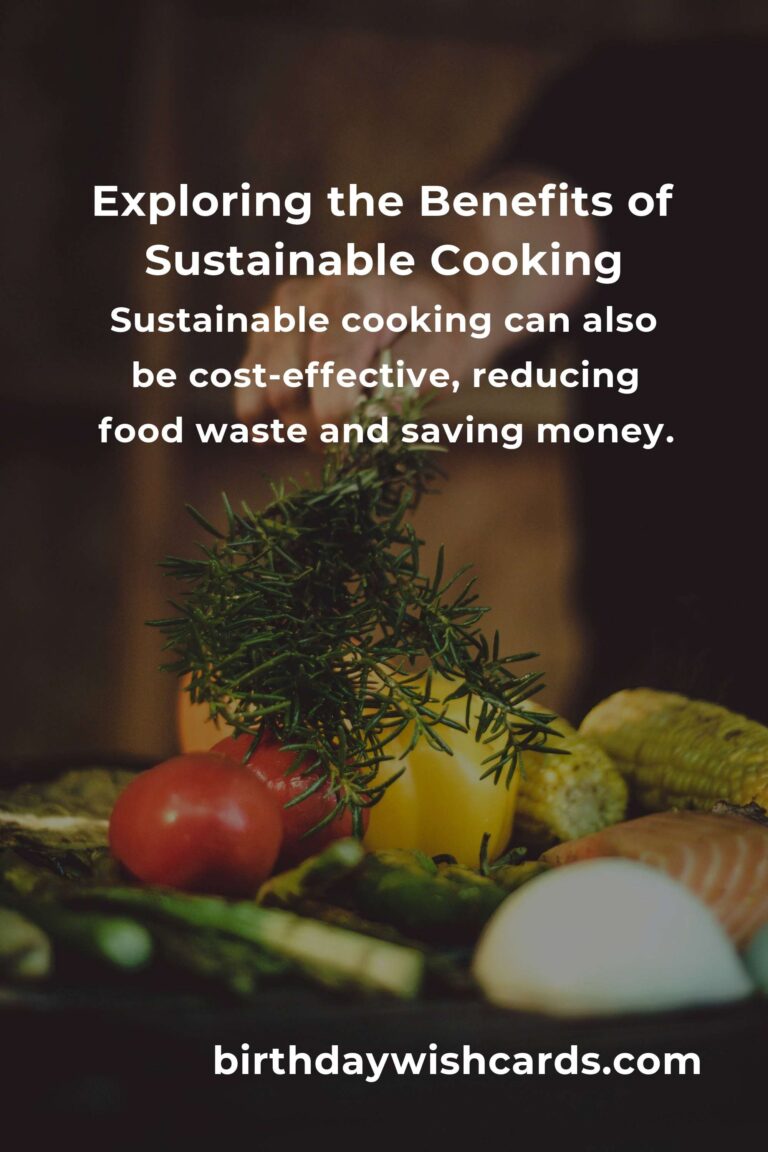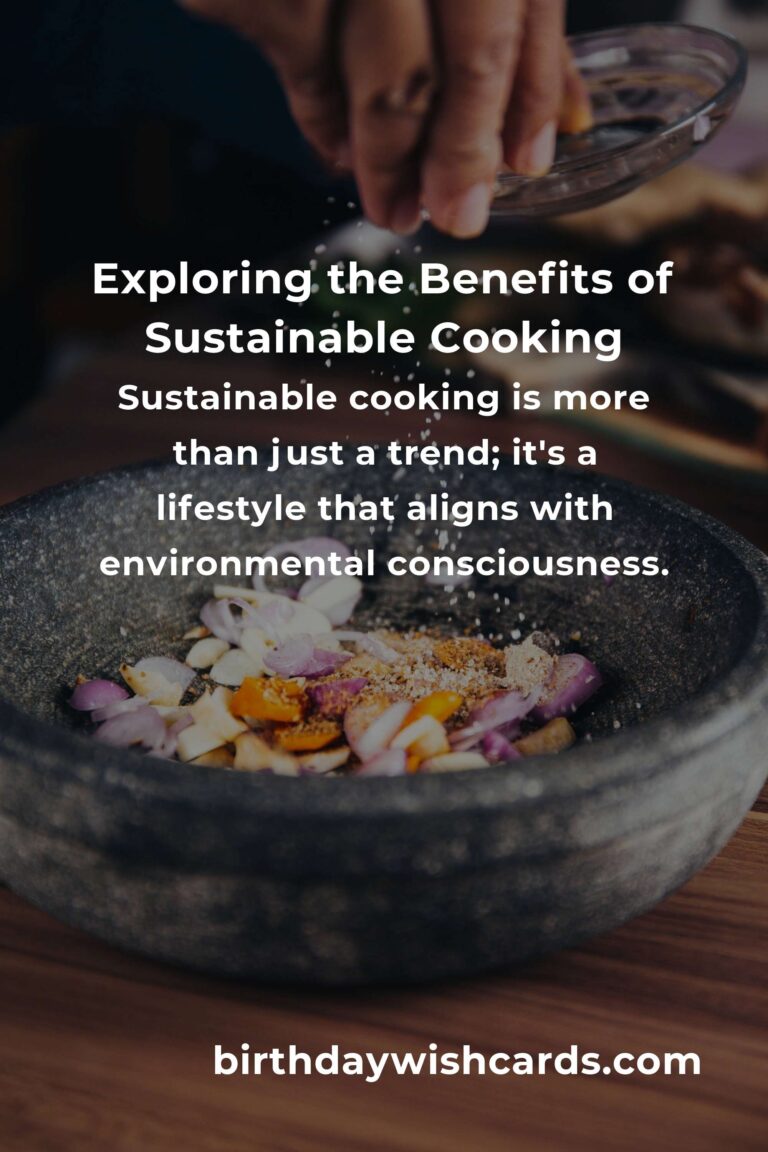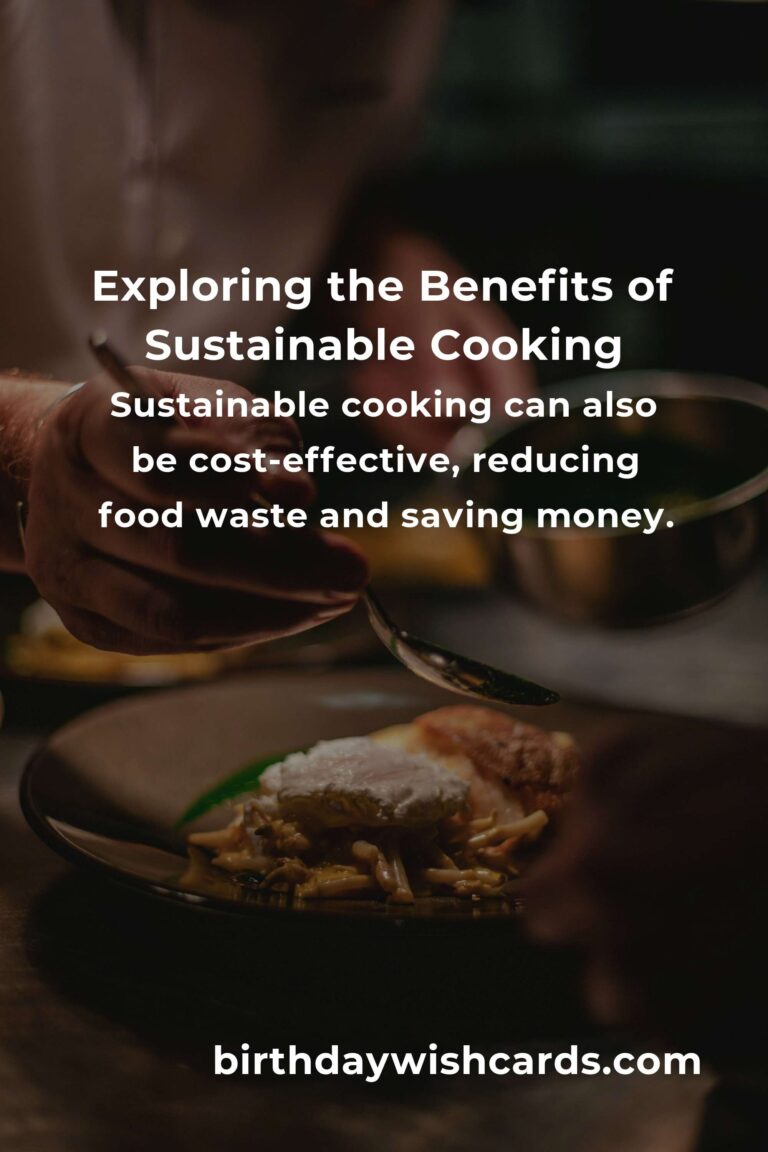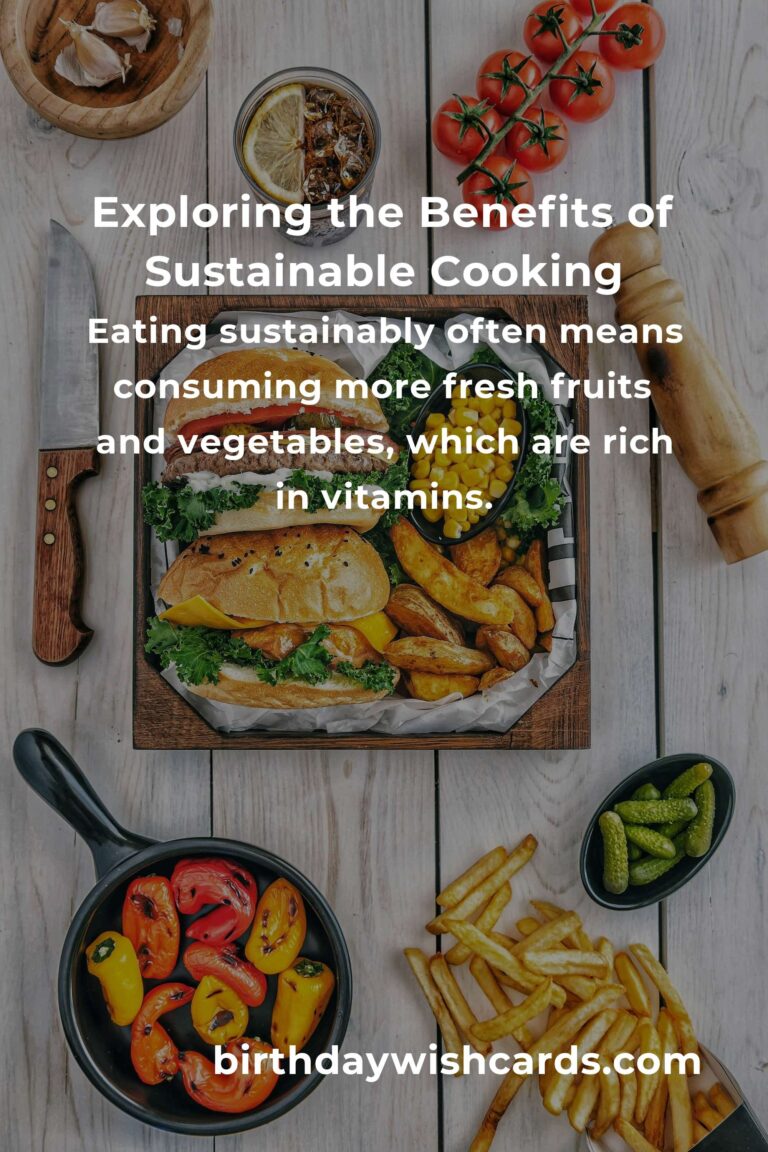
Sustainable cooking is more than just a trend; it’s a lifestyle that aligns with environmental consciousness and health awareness. By adopting sustainable cooking practices, you not only benefit the planet but also enhance your well-being and culinary skills.
Understanding Sustainable Cooking
Sustainable cooking involves selecting ingredients and cooking methods that have a reduced impact on the environment. It emphasizes the use of local, seasonal, and organic produce, minimizing waste, and conserving energy during the cooking process.
The Environmental Impact of Sustainable Cooking
One of the most significant advantages of sustainable cooking is its positive impact on the environment. By choosing local and seasonal ingredients, you reduce the carbon footprint associated with transporting food over long distances. Additionally, sustainable cooking encourages the use of whole foods, which reduces packaging waste.
Health Benefits of Sustainable Cooking
Eating sustainably often means consuming more fresh fruits and vegetables, which are rich in vitamins, minerals, and antioxidants. Organic produce tends to have fewer pesticides and chemicals, leading to healthier meals. Moreover, sustainable cooking practices often involve less processed foods, which can contribute to better overall health.
Economic Advantages
Sustainable cooking can also be cost-effective. By purchasing local and seasonal foods, you often spend less as these products do not incur extra transportation costs. Additionally, reducing food waste by utilizing leftovers and cooking in bulk can lead to significant savings over time.
Enhancing Culinary Skills
Engaging in sustainable cooking encourages creativity in the kitchen. With a focus on whole foods and fresh ingredients, you are more likely to experiment with new recipes and cooking techniques. This not only improves your cooking skills but also adds variety to your meals.
Simple Tips for Sustainable Cooking
- Plan Your Meals: Planning helps reduce food waste and ensures you use seasonal ingredients.
- Buy in Bulk: Purchasing in bulk reduces packaging waste and often saves money.
- Grow Your Own: If possible, start a small garden to have fresh herbs and vegetables at your fingertips.
- Compost: Use kitchen scraps to create compost, enriching your garden while reducing waste.
Conclusion
Sustainable cooking is a rewarding practice that benefits both the individual and the planet. By incorporating sustainable techniques into your daily routine, you contribute to environmental conservation, improve your health, and refine your culinary skills. Start today and experience the hidden benefits of sustainable cooking.
Sustainable cooking is more than just a trend; it’s a lifestyle that aligns with environmental consciousness. By choosing local and seasonal ingredients, you reduce the carbon footprint associated with transporting food. Eating sustainably often means consuming more fresh fruits and vegetables, which are rich in vitamins. Sustainable cooking can also be cost-effective, reducing food waste and saving money. Engaging in sustainable cooking encourages creativity and improves your cooking skills.
#SustainableCooking #HealthyEating #EcoFriendly #EnvironmentalConservation #CulinarySkills


